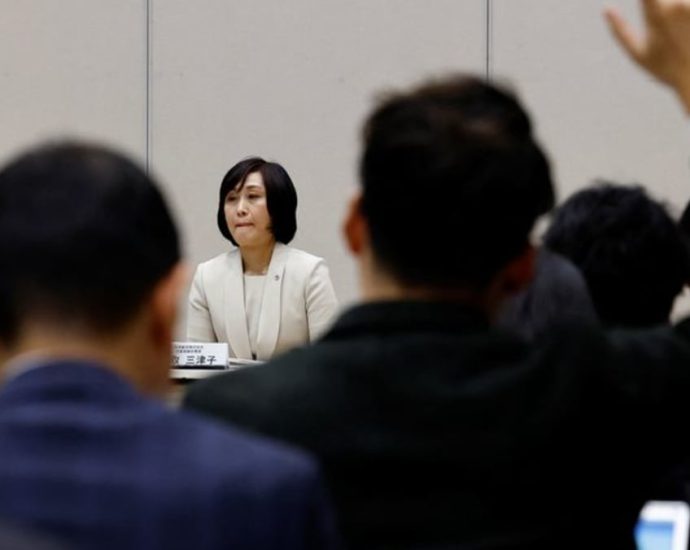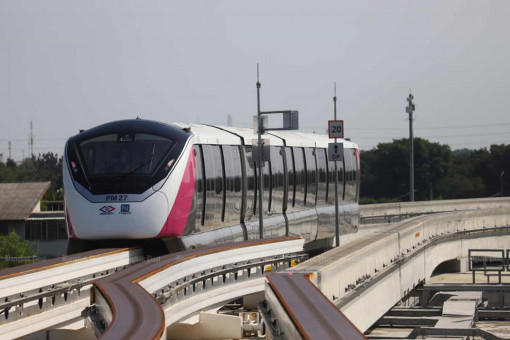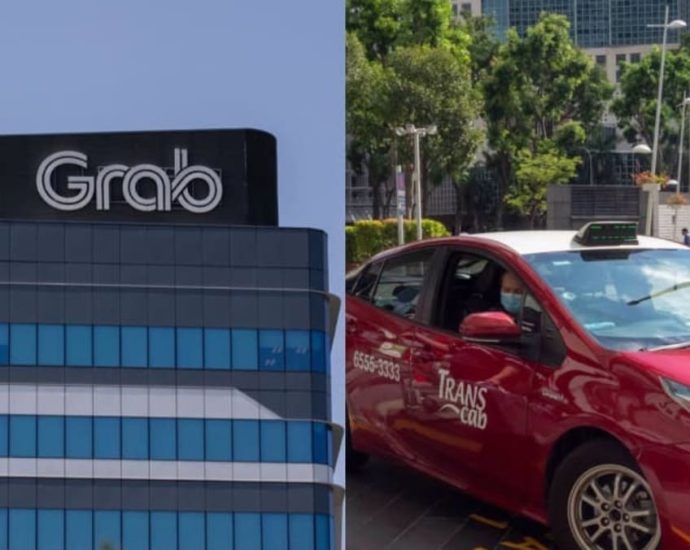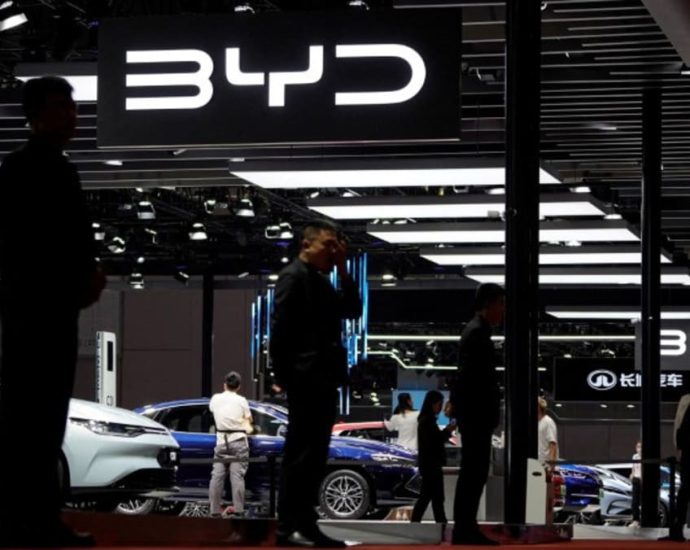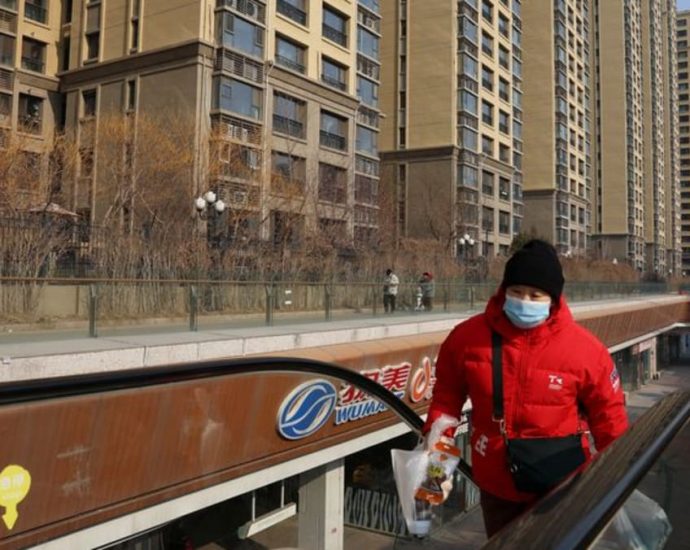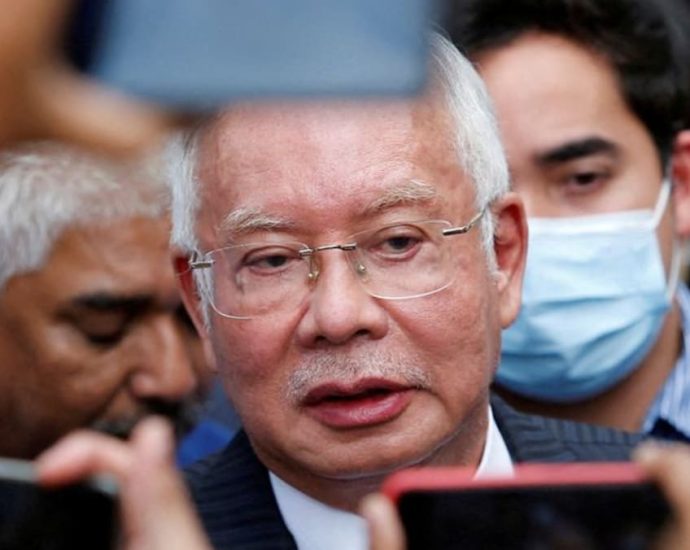India snow leopards: First-ever survey puts population at 718
 SAPI/ Wildlife Institute of India
SAPI/ Wildlife Institute of India
India is home to 718 snow leopards, according to the first-ever survey of the animal in the country, the federal environment ministry has said.
This means that Indian snow leopards account for roughly 10-15% of the big cat’s global population.
The snow leopard is classified as vulnerable by the International Union for Conservation of Nature.
Its numbers in the wild face multiple threats – from habitat loss and poaching to infrastructure development.
The survey – Snow Leopard Population Assessment in India (SPAI) Program – was done from 2019 to 2023.
It was conducted as part of the Population Assessment of the World’s Snow Leopards (Paws), a global effort to determine the snow leopard’s numbers.
The survey in India covered roughly 120,000 sq km (46,332 sq miles) of the animal’s habitat across the trans-Himalayan region.
“Until recent years, the snow leopard range in India was undefined due to a lack of extensive nationwide assessments for this vulnerable species,” the environment ministry said in a statement.

The survey covered 70% of the potential snow leopard habitat in the country, including the regions of Ladakh and Jammu and Kashmir, the states of Himachal Pradesh and Uttarakhand in northern India, and Sikkim and Arunachal Pradesh in the northeast.
After camera traps identified 214 individual snow leopards, surveyors analysed leopard trails and other data to estimate the animal’s population at 718.
The report says that understanding the precise population of the animal is important because of its role as the apex predator in the Himalayan ecosystem.
The snow leopard population can indicate health of the ecosystem as well as help identify potential threats to its habitat and shifts caused by climate change, it adds.
“The integrity of these high-altitude habitats is intertwined with the socio-cultural fabric of local communities and the economic sustenance of populations residing downstream.”
The report says that 70% of the land used by the animal is unprotected and provides critical habitat for wildlife.
The animal will need consistent monitoring to ensure its long-term survival, it adds.

Read more India stories from the BBC:
- Dense fog disrupts life and travel in India capital
- Indian navy rescues two boats from pirates in two days
- Fifteen sentenced to death for India political murder
- India denies Pakistan’s claim of targeted killings
- Why India wants to fence its troubled Myanmar border
- The Sufi shrine caught up in a religious row in India

Related Topics
Japan Inc opens door to more women directors, but managers remain rare
Tashiro is one of the most senior women in Japanese finance, where, like many industries, the top echelons remain overwhelmingly male. Women account for only 13.4 per cent of directors and executive officers at the 1,836 firms listed on the TSE’s “prime” market, and of these a mere 13 perContinue Reading
Pakistan ex-PM Imran Khan and wife get 14 years jail in graft case
ISLAMABAD, Pakistan: Former Pakistan prime minister Imran Khan and his wife were sentenced on Wednesday (Jan 31) to 14 years in jail after being found guilty of graft in a case involving gifts he received while premier. The verdict, a week before national elections, comes a day after Khan wasContinue Reading
Myanmar hands over three junta-backed Chinese warlords to Beijing
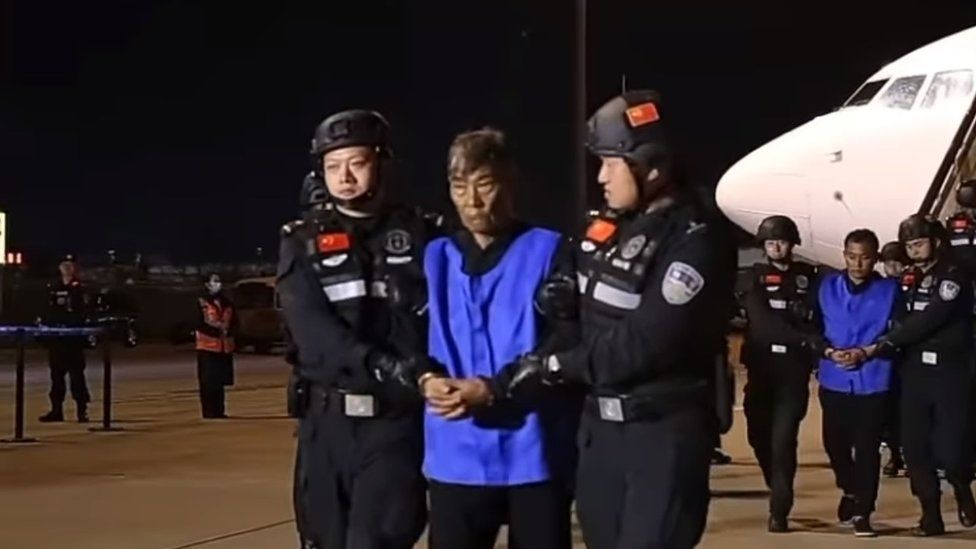 Eastern Broadcasting Company
Eastern Broadcasting CompanyMyanmar has handed over three Chinese warlords to Beijing, who were notorious for running scam centres that trapped more than 100,000 foreign nationals.
Bai Suocheng, Wei Chaoren and Liu Zhengxiang led three of four families which ruled Laukkaing on Myanmar’s north-eastern border with China.
They were were taken to China on a chartered flight, with seven others.
This is the latest twist in the stunning downfall of the military-backed Chinese mafia in Myanmar.
And it’s yet another blow for Myanmar’s military regime, whose power is waning.
Myanmar’s army, which had been locked in a brutal stalemate since it sized power in early 2021, is now losing as it battles well-organised ethnic armies on more than one front.
General Min Aung Hlaing is known to have supported the Chinese mafia in Laukkaing. For years, China had been pressing his regime to rein in the scam centres but with little success.
China’s unease encouraged three insurgent armies to launch coordinated attacks against the military in late October last year – and hastened the fall of the mafia families.
The four families took over control of Laukkaing in 2009. Liu Guoxi, who led the fourth family, died in 2020.
Over the years, their reign turned a poor Burmese border town into a den of criminal activity, especially for lucrative scam centres. The UN estimates that hundreds of thousand of people have been trafficked into these centres across South East Asia.
“For a long time, multiple criminal groups… in northern Myanmar have openly organised armed fraud gangs and carried out telecom fraud crimes against Chinese citizens,” China’s Ministry of Public Security said on Tuesday. Telecom fraud refers to the scams that people trapped in the scam centres were being forced to run.
They are also accused of “multiple and severe violent crimes”, the ministry said, such as murder, assault and illegal detention.
In December, Beijing issued a public reward for these men and others in their network, describing them as “ring leaders” and sent a team to Myanmar to work with local authorities there.
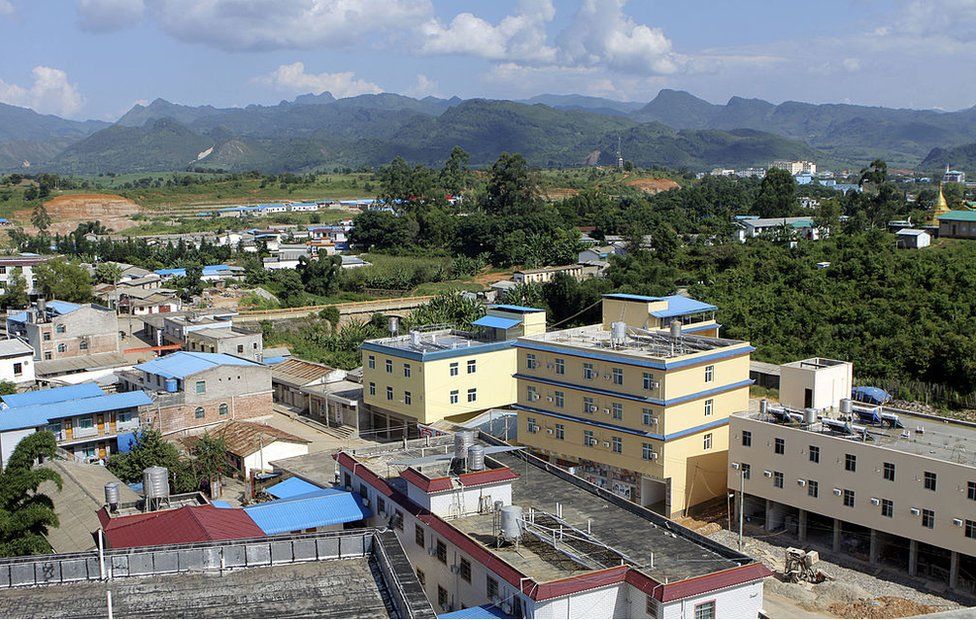
A vulnerable Myanmar army allowed China the opportunity to crack down on the scam compounds in Laukkaing.
About 44,000 people suspected to be involved in the scam centres have been handed over to China from Myanmar so far, the Ministry of Public Security said.
But China called Tuesday’s development – the arrest of the three heads of the mafia families – a “landmark achievement”.
Footage aired on Chinese-language TV channels show dozens of Swat (Special Weapons and Tactics Unit) officers escorting suspects down the plane in Kunming and into police vans.

The Godfather(s) of Laukkaing
By Jonathan Head
With their close ties to the military, the Godfather-esque “four families” in Laukkaing developed extensive business networks in Myanmar, with stakes in mining, energy, infrastructure and casinos in other countries like Cambodia. They established links with organised crime networks in Macao and south-eastern China.
Under them the remote, impoverished backwater of Laukkaing was transformed into a rowdy casino hub of gaudy high-rise towers and seedy red-light districts.
Initially developed to take advantage of Chinese demand for gambling, which is illegal in China and many other neighbouring countries, Laukkaing’s casinos evolved into a lucrative front for money laundering, trafficking and in particular for dozens of scam centres.
More than 100,000 foreign nationals, many of them Chinese, were estimated to have been lured to these scam centres, where they were effectively imprisoned and forced to work long hours running sophisticated online fraud operations targeting victims all over the world.
Laukkaing took on the character of a Wild West boom town, where anything goes and anything can be bought and sold. There were occasional gun battles between rival scam centres, and powerful people kept lions and tigers as pets.
Read more on the ignominious end to a story that began in the days of revolution, but turned into one of drugs, gambling, and greed.
Related Topics
-
-
9 November 2023
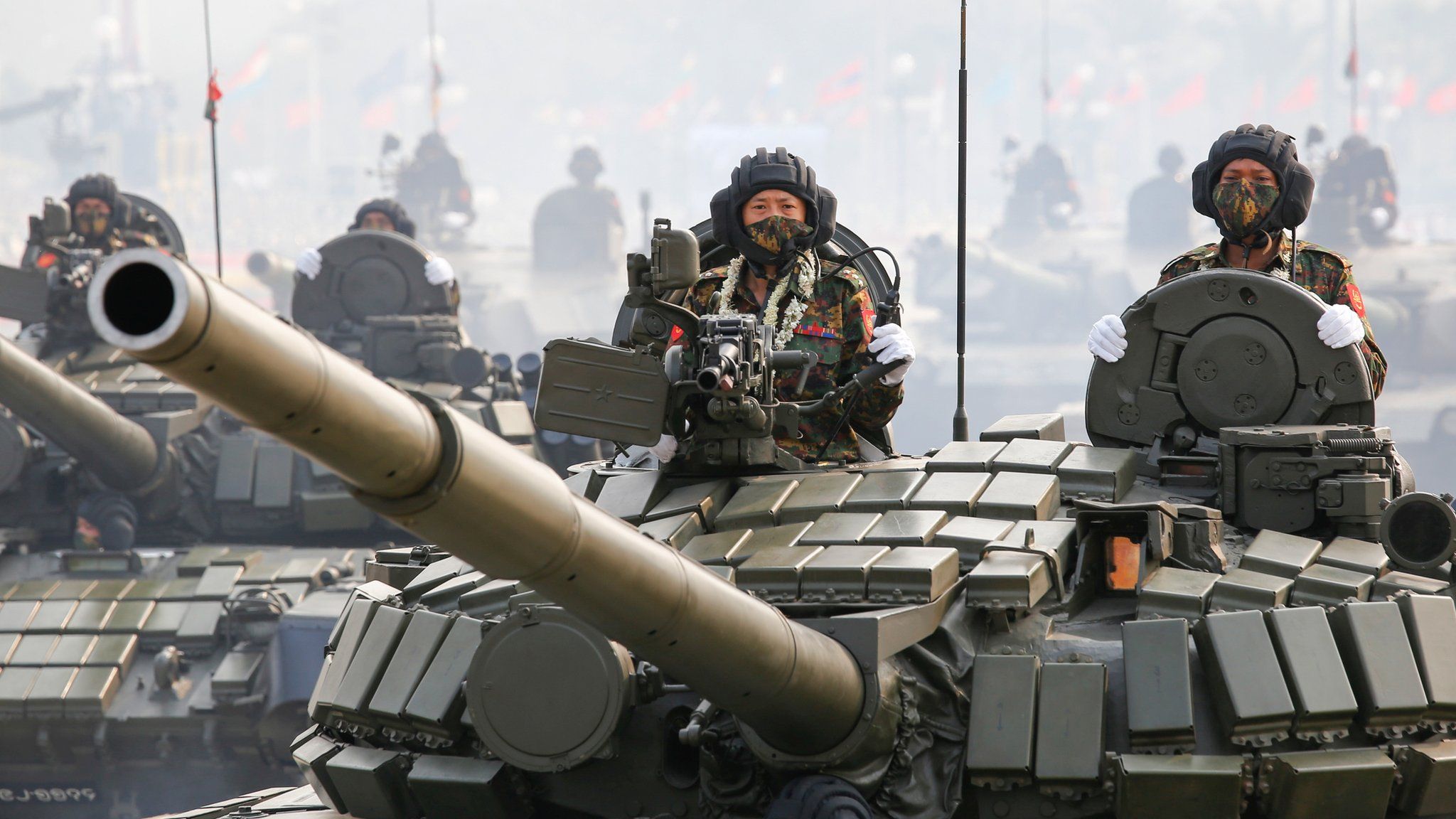
-
-
-
18 June 2023
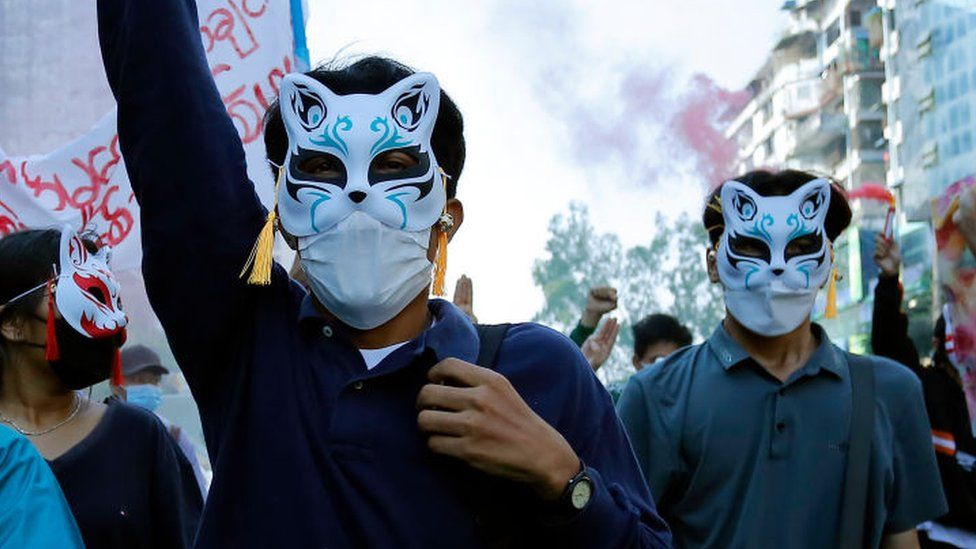
-
-
-
17 April 2023

-
Pink Line to resume full service
PUBLISHED : 31 Jan 2024 at 13:51

The Pink Line monorail will resume full service from Min Buri to Nonthaburi Civic Center on Thursday after its operator repaired a conductor rail that collapsed last month.
Inspecting the system on Tuesday, Deputy Transport Minister Surapong Piyachote said Pink Line developer and operator North Bangkok Monorail Co had completely repaired the conductor rail and the entire line was tested successfully on Wednesday.
At about 5am on Dec 24, 2023, a five-kilometre-long section of the conductor rail fell from the elevated structure of the Pink Line, from the Central Chest Institute of Thailand near the Khae Rai station to a pocket track (centre siding) near the Royal Irrigation Department station.
The conductor rail hit several parked vehicles on Tiwanon Road in the early hours of Christmas Eve.
Officials determined that the conductor rail was hit and dislodged when sheet piles were being lifted by cranes. An empty monorail train on a test run then pulled the rail down shortly before trial service was to start at 6am that day.
The 34-kilometre-long Pink Line links Bangkok’s northern district of Min Buri and Muang district of Nonthaburi to the west of the capital.
Competition watchdog begins in-depth review of Grab’s proposed Trans-cab acquisition

Grab and Trans-cab have argued that the acquisition will not result in a substantial lessening of competition, citing “minimal overlaps” between them; a lack of prohibitive barriers to entry; and a highly fragmented and competitive rental market.
On Oct 31, 2023, Grab proposed some commitments to address the competition concerns identified by CCCS.
“CCCS reviewed the commitments proposal and found that, without the benefit of an in-depth review, it was unable to conclude that the commitments proposal adequately addressed the competition concerns CCCS identified,” said the watchdog on Wednesday.
“For example, it did not adequately address the concern that the proposed acquisition may give Grab the ability and incentive to leverage its ownership of the Trans-cab fleet to induce Trans-cab drivers to use Grab’s ride-hail platform, whilst discouraging them from using rival ride-hail platforms.”
The tech firm’s proposed commitment duration of two years, as well as their self-policing monitoring mechanism, were also deemed to be insufficient, said CCCS, adding that Grab was informed on Nov 24, 2023 that it could not accept the proposal.
Grab had argued that the merger would ultimately benefit customers and improve driver earnings.
“Digitalising Trans-cab’s fleet will improve driver productivity and taxi availability so that consumers can get a ride more easily,” Grab said in October.
The company also said that Trans-cab drivers will still have the option of being on multiple ride-hailing platforms and pick up street hail rides.
China overtook Japan as world’s top vehicle exporter in 2023
TOKYO: China overtook Japan as the world’s biggest vehicle exporter last year, data from the Japan Automobile Manufacturers Association (JAMA) showed Wednesday (Jan 31). Japan shipped 4.42 million vehicles in 2023, the figures showed. That compared with 4.91 million exported by China, as reported by the China Association of AutomobileContinue Reading
What does Evergrandeâs liquidation mean for other property developers in China?

The liquidators could propose a new debt restructuring plan if it is determined that the Guangzhou-based firm has enough assets or if a white knight investor emerges. They could also refer suspected misconduct by directors to Hong Kong prosecutors.
The process, however, could be complicated, and face cross-jurisdictional issues as most of the developer’s assets are located in mainland China, said experts.
It is not clear whether the Hong Kong court order could be enforced onshore, Dr Wu told CNA’s Asia Now on Monday.
“Hong Kong and mainland China are two different jurisdictions, so this will be a challenge,” he said.
“If there’s no court in mainland China that actually recognises this Hong Kong court case, then perhaps there are limited things that the provisional liquidator in Hong Kong can do.
“(Even) if there is a court in mainland China that actually does recognise this court case, I think this will still be a long, drawn-out process.”
Imran Khan: Former Pakistan PM jailed another 14 years for graft

Imran Khan and his wife Bushra Bibi have been sentenced to 14 years in prison, a day after the former Pakistan prime minister was jailed for 10 years.
Khan, who was ousted as PM by his opponents in 2022, is already serving a three-year jail term after being convicted of corruption.
On Tuesday he was sentenced for leaking state secrets, and on Wednesday given another 14 years for a graft case.
Khan has said the numerous cases against him are politically motivated.
These latest convictions come just a week ahead of Pakistan’s national elections in which he is barred from standing.
It is believed that the sentences will be served concurrently. Khan has already been detained since last August when he was arrested.
His wife Bushra Bibi had been on remand during the trial – which pertained to allegations the couple had illegally sold state gifts they’d received for personal profit.
This breaking news story is being updated and more details will be published shortly. Please refresh the page for the fullest version.
You can receive Breaking News on a smartphone or tablet via the BBC News App. You can also follow @BBCBreaking on Twitter to get the latest alerts.
Related Topics
Former Malaysian premier Najib Razakâs jail term halved from 12 to 6 years, say official sources
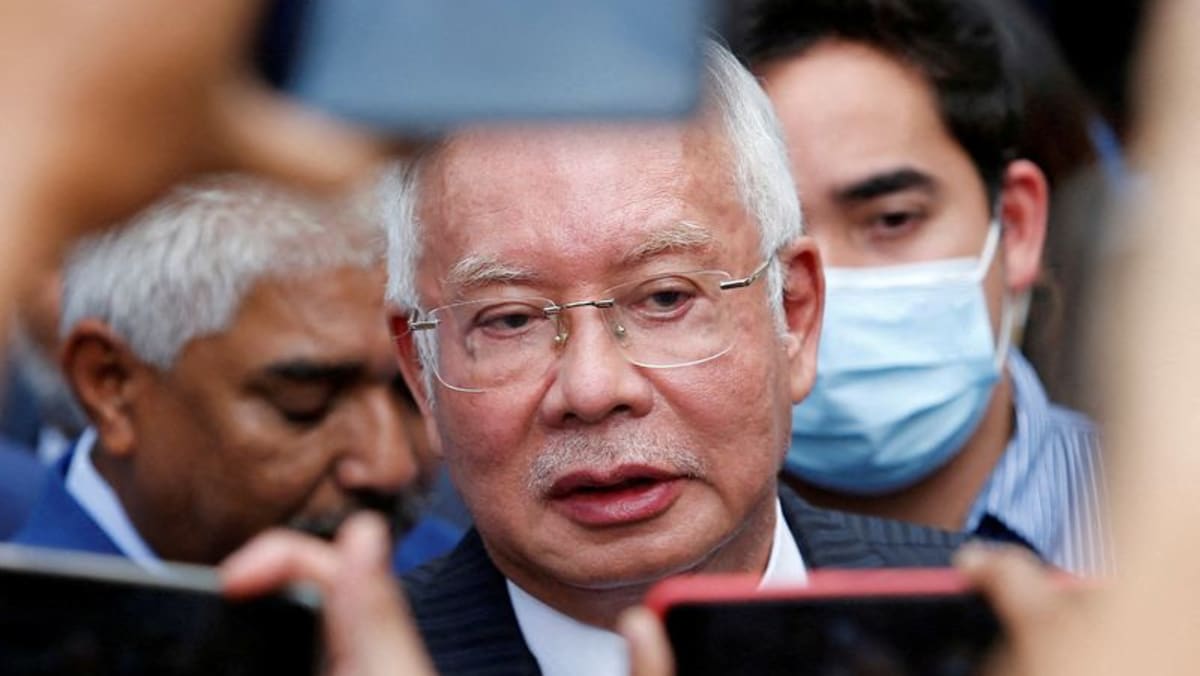
KUALA LUMPUR: Former Malaysian prime minister Najib Razak’s jail sentence for corruption has been reduced from 12 to six years by the Pardons Board following its meeting on Monday (Jan 29), sources including senior government officials told CNA.
The decision by the board, which is headed by Malaysia’s king, includes a reduction of his RM210 million (US$44.4 million) fine to an unspecified amount, according to three separate sources who spoke on condition of strict confidentiality.
The partial royal pardon for his role in the 1Malaysia Development Berhad (1MDB) case comes after serving less than two years of his prison term.
The reduction means Najib is expected to complete his sentence in August 2028. But with parole for good behaviour, he could be out in August 2026 after serving two-thirds of the new jail term.
There has been feverish speculation about the pardon after Dr Zaliha Mustafa, Minister in the Prime Minister’s Department (Federal Territories) confirmed on Tuesday that the board members including herself had met on Monday. She said an official announcement by the Pardons Board will be made.
The meeting was one of Sultan Abdullah Ri’ayatuddin’s last official tasks before he stepped down as Malaysia’s king on Jan 31 and handed the role to Johor ruler Sultan Ibrahim Sultan Iskandar under the country’s unique rotation system for its nine royal state households.
CNA is contacting the Malaysian authorities for comment. Najib’s lead counsel Muhammad Shafee Abdullah said he has yet to be informed of any decision by the Pardons Board.
NAJIB’S INFLUENCE AND OUTSTANDING CHARGES
Najib, an ex-United Malays National Organisation (UMNO) president, is still believed to wield huge influence in the party, which is part of Prime Minister Anwar Ibrahim’s unity government.
He was Malaysia’s premier for nine years until May 2018 and its first PM to be imprisoned. He began serving his jail term in August 2022 after two failed appeals to overturn his conviction at a Malaysian High Court two years earlier.
The charges involved the transfer of RM42 million from SRC International, a former subsidiary of 1MDB, into his personal bank accounts in 2014 and 2015.
He was found guilty of three counts of criminal breach of trust, three counts of money laundering and one count of abuse of power by the High Court in July 2020, and was sentenced to 12 years in jail and fined RM210 million. The fine remains unsettled.
He is also facing several other charges in relation to the 1MDB scandal, including the laundering of RM27 million involving funds from SRC International.
Najib’s lawyers have applied to dismiss this money laundering case, and the court has said he can apply for an acquittal, or a discharge not amounting to an acquittal if prosecutors are not prepared to proceed with the trial in September, local media reported.
1MDB, Najib’s brainchild shortly after he became premier, turned into one of the biggest scandals to rock Malaysia and the international financial community. United States and Malaysian investigators estimate that more than US$4.5 billion was stolen from the fund and another US$1 billion flowed into accounts held by Najib.
Just days after Najib began serving his sentence at the Federal Prison of Kajang on the outskirts of Kuala Lumpur, he applied for a royal pardon.
CNA previously reported that Najib’s lead counsel Shafee filed a fresh application in early December last year for the Pardons Board to revisit his client’s clemency application.
This led to the change of heart among certain members of the Pardons Board, government officials close to the situation noted without elaborating. The application came before the Pardons Board in a meeting in December, but the matter was deferred to January.
Malaysia is a constitutional monarchy, giving the king the final word on the pardon of convicted criminals, a similar system that governs neighbouring Thailand.


